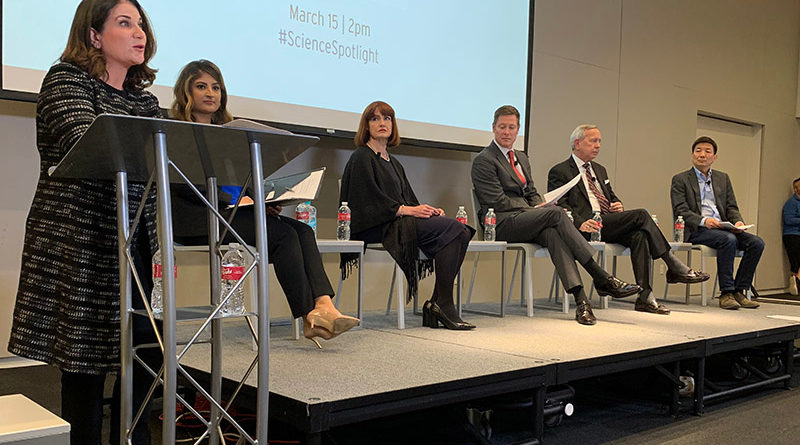Hospitals Restrict Visitors, Consolidate Points of Entry Amid COVID-19 Concerns
Visitors may have noticed increased restrictions at area hospitals March 16 as local officials work to prevent the spread of COVID-19.
DFW Hospital Council CEO Stephen Love, whose council includes about 90 area hospitals, said during a March 15 panel at the Perot Museum that area hospitals are taking measures like consolidating points of entry into their facilities, questioning visitors when they enter about whether they’re experiencing symptoms and their travel history, and adding age restrictions for visitors, with some specific exceptions. Baylor Scott & White Health, Medical City, Texas Health Resources, Parkland, Methodist Health System, and JPS are among the area hospitals that have shared modified entry and/or visitor policies to prevent the spread of the novel coronavirus on their websites.
“Hospitals want to accommodate families, patients, and friends of people that are patients. However, with COVID-19, we are going to consolidate in many of our hospitals and hospital systems different points of entry so we can control the flow of patients and visitors,” Love said.
He said those who don’t have good answer to those questions or who have been exposed to someone who tested positive won’t be allowed to visit.
“The number of visitors will be, obviously, I won’t say restricted, but curtailed in the near future and we’re going to ask people that do visit to wash their hands and use hand sanitizer before they enter the patient’s room and when they leave,” Love said.
He said the age restrictions mostly prevent those younger than 16 from visiting area hospitals unless there are specific, one-on-one exceptions that are coordinated with the specific hospital.
Love added that, as of March 15, area hospitals have enough personal protective equipment.
“Please don’t panic, and does everybody need a test?…the answer is ‘no.’ The medical professionals and the people that treat you are going to make the determination if you need a test,” he said. “It truly takes a village, all of us working together, all of us doing our part to help prevent the spread of this is going to be in the best interest of the community. “
Love added that those who are experiencing symptoms, which experts say include fever, coughing, and/or shortness of breath, should go to their primary care provider first, rather than the emergency room.
In a bit of good news, said there are private labs that are expanding the number of test sites available and there are other tools that can help with the initial screening process to determine whether a test is needed.
“Many of our healthcare systems have got excellent virtual-screening tools where you can go in, go through a series of questions, and it helps guide and direct you, in many cases, to give you peace of mind that you probably don’t even need a test, but it’s to educate you and help you screen,” he said.









